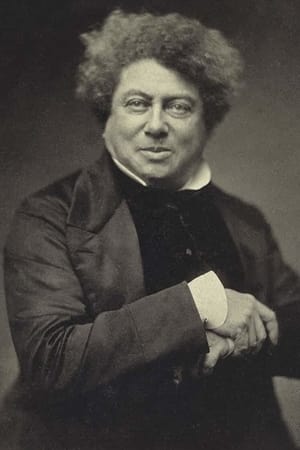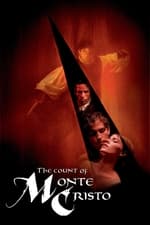Informations personnelles
Célèbre pour Écriture
Apparitions connues 173
Genre Homme
Date de naissance 24 juillet 1802
Date de décès 5 décembre 1870 (68 ans)
Lieu de naissance Villers-Cotterêts, Aisne, France
Alias
- Alexander Dumas
- Alejandro Dumas
- Dumas Davy de la Pailleterie
- Александр Дюма
- Александр Дюма отец
- Alexandre Dumas père
- Alexandre Dumas p.
Score de contenu
100
Superbe ! Cette fiche semble complète !
Connectez-vous afin de
signaler un problème.
Biographie
Alexandre Dumas (born Dumas Davy de la Pailleterie; 24 July 1802 – 5 December 1870), also known as Alexandre Dumas père (where père is French for 'father', to distinguish him from his son Alexandre Dumas fils), was a French writer. His works have been translated into many languages, and he is one of the most widely read French authors. Many of his historical novels of high adventure were originally published as serials, including The Count of Monte Cristo, The Three Musketeers, Twenty Years After, and The Vicomte of Bragelonne: Ten Years Later. His novels have been adapted since the early twentieth century into nearly 200 films.
Prolific in several genres, Dumas began his career by writing plays, which were successfully produced from the first. He also wrote numerous magazine articles and travel books; his published works totalled 100,000 pages. In the 1840s, Dumas founded the Théâtre Historique in Paris.
His father, General Thomas-Alexandre Dumas Davy de la Pailleterie, was born in the French colony of Saint-Domingue (present-day Haiti) to Alexandre Antoine Davy de la Pailleterie, a French nobleman, and Marie-Cessette Dumas, an African slave. At age 14, Thomas-Alexandre was taken by his father to France, where he was educated in a military academy and entered the military for what became an illustrious career.
Dumas's father's aristocratic rank helped young Alexandre acquire work with Louis-Philippe, Duke of Orléans, then as a writer, a career which led to early success. Decades later, after the election of Louis-Napoléon Bonaparte in 1851, Dumas fell from favour and left France for Belgium, where he stayed for several years, then moved to Russia for a few years before going to Italy. In 1861, he founded and published the newspaper L'Indépendent, which supported Italian unification, before returning to Paris in 1864.
Though married, in the tradition of Frenchmen of higher social class, Dumas had numerous affairs (allegedly as many as 40). He was known to have had at least four illegitimate children, although twentieth-century scholars believe it was seven. He acknowledged and assisted his son, Alexandre Dumas, to become a successful novelist and playwright. They are known as Alexandre Dumas père ('father') and Alexandre Dumas fils ('son'). Among his affairs, in 1866, Dumas had one with Adah Isaacs Menken, an American actress who was less than half his age and at the height of her career.
The English playwright Watts Phillips, who knew Dumas in his later life, described him as "the most generous, large-hearted being in the world. He also was the most delightfully amusing and egotistical creature on the face of the earth. His tongue was like a windmill – once set in motion, you never knew when he would stop, especially if the theme was himself." ...
Source: Article "Alexandre Dumas" from Wikipedia in English, licensed under CC-BY-SA 3.0.
Alexandre Dumas (born Dumas Davy de la Pailleterie; 24 July 1802 – 5 December 1870), also known as Alexandre Dumas père (where père is French for 'father', to distinguish him from his son Alexandre Dumas fils), was a French writer. His works have been translated into many languages, and he is one of the most widely read French authors. Many of his historical novels of high adventure were originally published as serials, including The Count of Monte Cristo, The Three Musketeers, Twenty Years After, and The Vicomte of Bragelonne: Ten Years Later. His novels have been adapted since the early twentieth century into nearly 200 films.
Prolific in several genres, Dumas began his career by writing plays, which were successfully produced from the first. He also wrote numerous magazine articles and travel books; his published works totalled 100,000 pages. In the 1840s, Dumas founded the Théâtre Historique in Paris.
His father, General Thomas-Alexandre Dumas Davy de la Pailleterie, was born in the French colony of Saint-Domingue (present-day Haiti) to Alexandre Antoine Davy de la Pailleterie, a French nobleman, and Marie-Cessette Dumas, an African slave. At age 14, Thomas-Alexandre was taken by his father to France, where he was educated in a military academy and entered the military for what became an illustrious career.
Dumas's father's aristocratic rank helped young Alexandre acquire work with Louis-Philippe, Duke of Orléans, then as a writer, a career which led to early success. Decades later, after the election of Louis-Napoléon Bonaparte in 1851, Dumas fell from favour and left France for Belgium, where he stayed for several years, then moved to Russia for a few years before going to Italy. In 1861, he founded and published the newspaper L'Indépendent, which supported Italian unification, before returning to Paris in 1864.
Though married, in the tradition of Frenchmen of higher social class, Dumas had numerous affairs (allegedly as many as 40). He was known to have had at least four illegitimate children, although twentieth-century scholars believe it was seven. He acknowledged and assisted his son, Alexandre Dumas, to become a successful novelist and playwright. They are known as Alexandre Dumas père ('father') and Alexandre Dumas fils ('son'). Among his affairs, in 1866, Dumas had one with Adah Isaacs Menken, an American actress who was less than half his age and at the height of her career.
The English playwright Watts Phillips, who knew Dumas in his later life, described him as "the most generous, large-hearted being in the world. He also was the most delightfully amusing and egotistical creature on the face of the earth. His tongue was like a windmill – once set in motion, you never knew when he would stop, especially if the theme was himself." ...
Source: Article "Alexandre Dumas" from Wikipedia in English, licensed under CC-BY-SA 3.0.
Écriture
Création
|
|||
|








